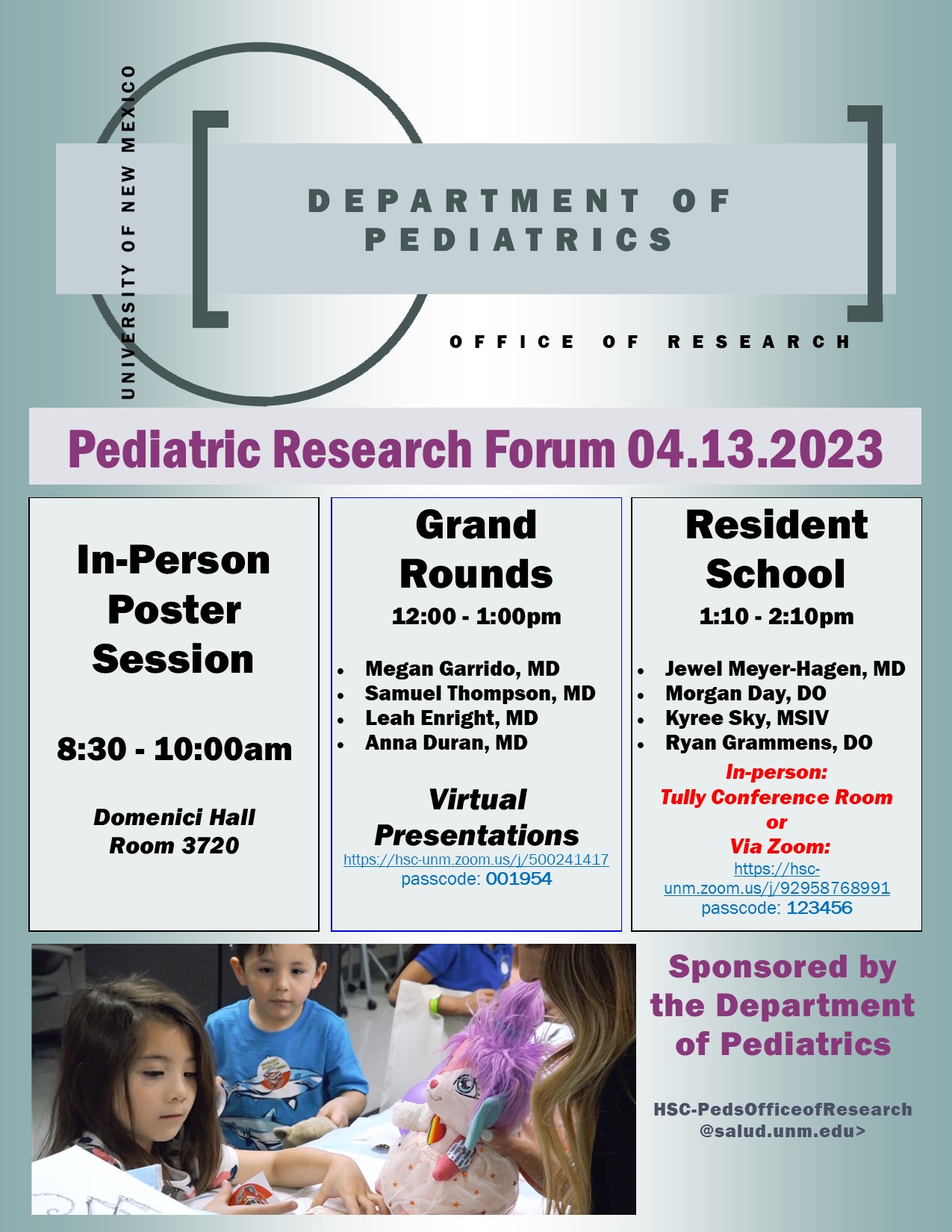Document Type
Presentation
Publication Date
4-13-2023
Abstract
The STRONGkids malnutrition risk tool has not been validated in the U.S. Our objective was to evaluate the predictivity validity of the STRONGkids tool in U.S. pediatric hospitals. A trained registered dietitian nutritionist (RDN) completed the STRONGkids tool for all enrolled patients. Clinical outcomes, disease severity (Charlson Comorbidity Index), and sociodemographics were extracted from the medical record. Multilevel Poisson or generalized linear models were used to examine the relationship between STRONGkids tool results (0 points = low nutrition risk; 1-3 = medium risk; 4-5 = high risk) and total number of readmissions and emergency room visits within 90 days of discharge or log-transformed length of stay (LOS), controlling for disease severity, child age, sex, race, and ethnicity, and including random effect of site. Three hundred and forty-eight pediatric patients from 27 U.S. pediatric hospitals were enrolled; 327 patients had complete data and were included in the analysis. Participants were about half boys (n=184; 53%), had a median age of 2.1 years (interquartile range [IQR]: 10 months, 8.6 years), and were primarily white (n=221; 67%) or Black (n=72; 22%); 21% (n=73) identified as Hispanic. After controlling for covariates, there was a significantly higher incidence of ER visits and readmissions for children who scored at high or medium versus low nutrition risk (medium risk incidence rate ratio [IRR]: 1.76 (95% CI: 1.16, 2.68; p = 0.008; high risk IRR: 1.80; 95% CI: 1.15, 2.80; p = 0.01). Children that were high nutrition risk also had significantly longer LOS (39% longer LOS; 95% CI: 2%, 89% longer LOS; p = 0.03) compared with children at low risk. Routine integration of an RDN-administered STRONGkids tool into assessment practices for hospitalized children may be helpful in identifying children that need more attention related to nutrition assessment and intervention, coordination of care, and discharge planning.
Recommended Citation
Thompson, Samuel; Erin Lamers-Johnson; Alison Steiber; and Elizabeth Yakes Jimenez. "Validity of the STRONGkids Malnutrition Tool in U.S. Hospitals." (2023). https://digitalrepository.unm.edu/hsc_2023_pediatric_research/18


Comments
Presentation presented at Pediatric Research Forum